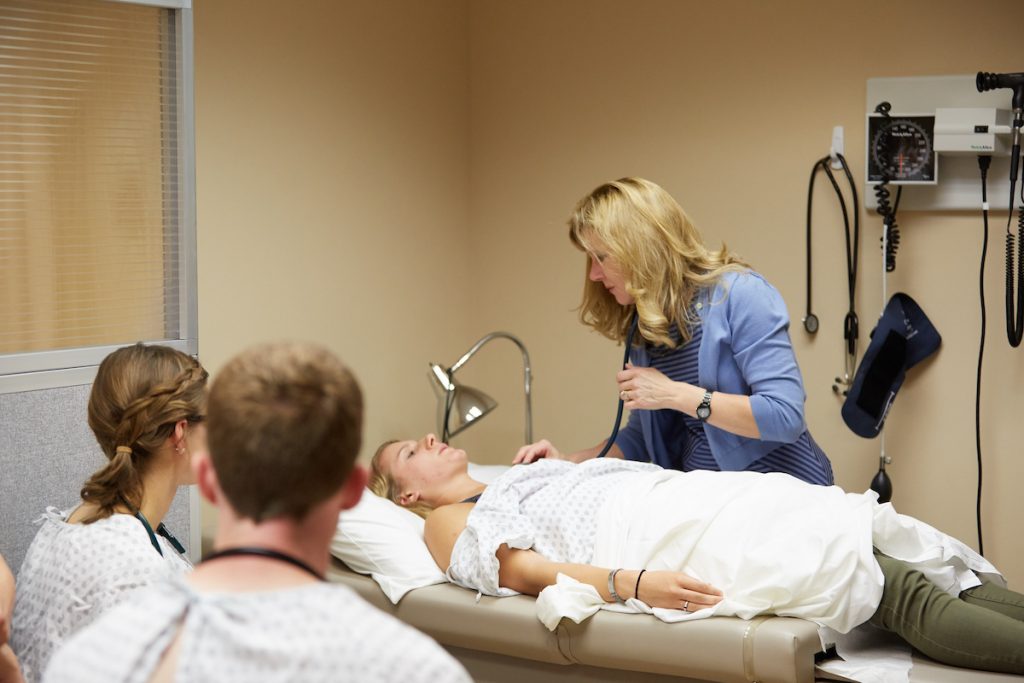
Sandra Sieck, UW-La Crosse’s PA program director, demonstrates during a class in the Physician Assistant Studies program.
When UW-La Crosse graduate Jessica DeBruyne decided to continue her education to become a physician assistant, she looked no further than her alma mater.
Factors like a 100 percent pass rate on the Physician Assistant National Certifying Exam among graduates, small class sizes and a partnership with two leading healthcare institutions, made UWL’s program particularly attractive, she says.
“Despite looking into other PA programs across the Midwest, I knew that that UWL’s PA program would be the best fit for me,” she says.
Today, DeBruyne is working toward her graduate degree in UWL’s Physician Assistant Studies program, a program offered in partnership with two area healthcare systems. She doesn’t regret the decision. In fact, she’s eager to promote the program and the profession she’s planning to pursue after graduation.

Students studying to become physician assistants learn skills that allow them to to fill many duties previously completed by doctors.
Oct. 6-12 is National PA week, a time to celebrate the profession that has helped fill primary care doctor shortages nationwide since the first graduating class of PAs from Duke University in 1967. A 2016 report from the Association of American Medical Colleges projects a shortage of physicians ranging between 61,700 and 94,700 over the next decade.
The career has consistently been considered one of the fastest growing professions. PAs were ranked the most promising job of 2015 by Forbes.com. All UWL graduates who seek employment after graduation are employed as PAs, and more than 90 percent of program graduates stay within the tri-state area to practice medicine, which includes Wisconsin, Minnesota and Iowa, says Sandra Sieck, UWL’s PA program director.
Sieck says UWL is extremely fortunate to have program partners — Gundersen Medical Foundation and Mayo Clinic School of Health Science of Rochester. UWL PA Program instructors include renowned clinicians and scientists.
“The program faculty have a sincere commitment to quality education and work hard to promote the PA profession in all they do,” says DeBruyne. “I’ve never regretted choosing this program!”
Learn more about the Physician Assistant Studies program.
Graduates of the program, now working in the region, explain how the program prepared them.
